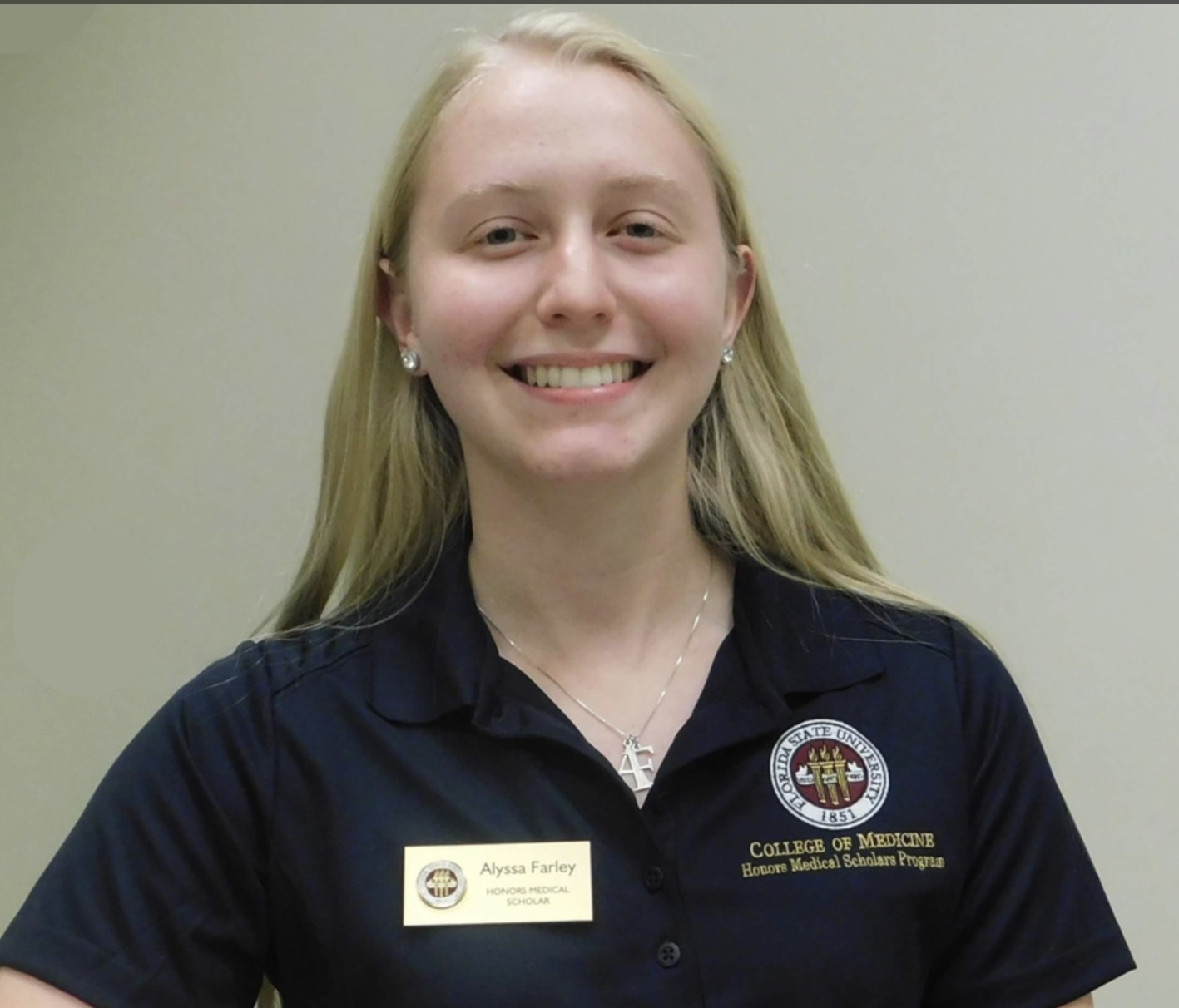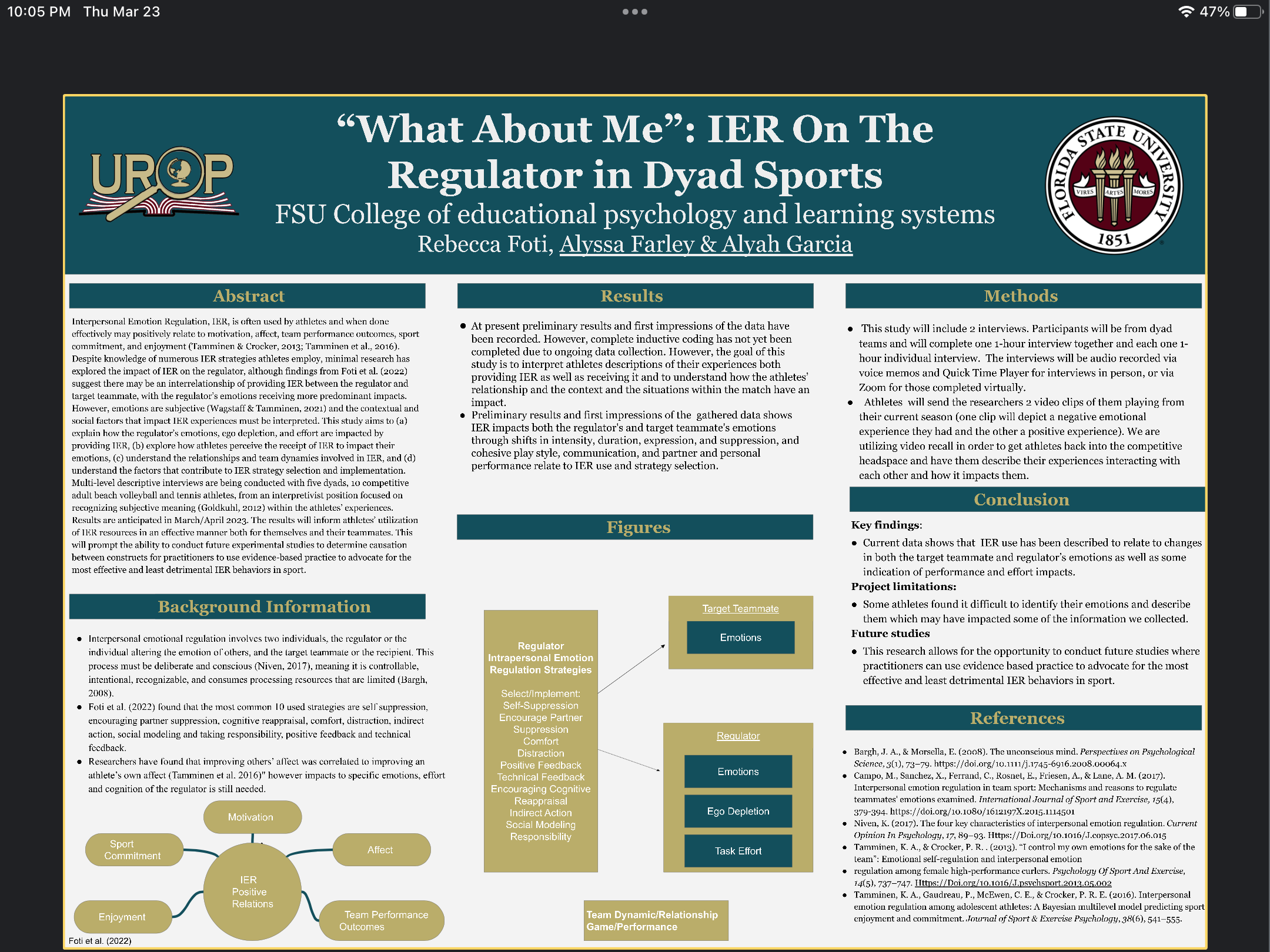Research Symposium
23rd annual Undergraduate Research Symposium, April 6, 2023
Alyssa Farley Poster Session 4: 4:00 pm - 5:00 pm/ Poster #184

BIO
Play sports as a hobby, from Inverness, FL, and I want to become a doctor.
“What About Me”: IER On The Regulator in Dyad Sports
Authors: Alyssa Farley, Rebecca FotiStudent Major: Behavioral Neuroscience
Mentor: Rebecca Foti
Mentor's Department: Department of Educational Psychology & Learning Systems Mentor's College: College of Education Co-Presenters: Alyah Garcia
Abstract
Interpersonal Emotion Regulation, IER, is often used by athletes and when done effectively may positively relate to motivation, affect, team performance outcomes, sport commitment, and enjoyment (Tamminen & Crocker, 2013; Tamminen et al., 2016). Despite knowledge of numerous IER strategies athletes employ, minimal research has explored the impact of IER on the regulator, although findings from Foti et al. (2022) suggest there may be an interrelationship of providing IER between the regulator and target teammate, with the regulator’s emotions receiving more predominant impacts. However, emotions are subjective (Wagstaff & Tamminen, 2021) and the contextual and social factors that impact IER experiences must be interpreted. This study aims to (a) explain how the regulator’s emotions, ego depletion, and effort are impacted by providing IER, (b) explore how athletes perceive the receipt of IER to impact their emotions, (c) understand the relationships and team dynamics involved in IER, and (d) understand the factors that contribute to IER strategy selection and implementation. Multi-level descriptive interviews are being conducted with five dyads, 10 competitive adult beach volleyball and tennis athletes, from an interpretivist position focused on recognizing subjective meaning (Goldkuhl, 2012) within the athletes’ experiences. Results are anticipated in March/April 2023. The results will inform athletes’ utilization of IER resources in an effective manner both for themselves and their teammates. This will prompt the ability to conduct future experimental studies to determine causation between constructs for practitioners to use evidence-based practice to advocate for the most effective and least detrimental IER behaviors in sport.
Keywords: Emotion, Sports, Psychology


